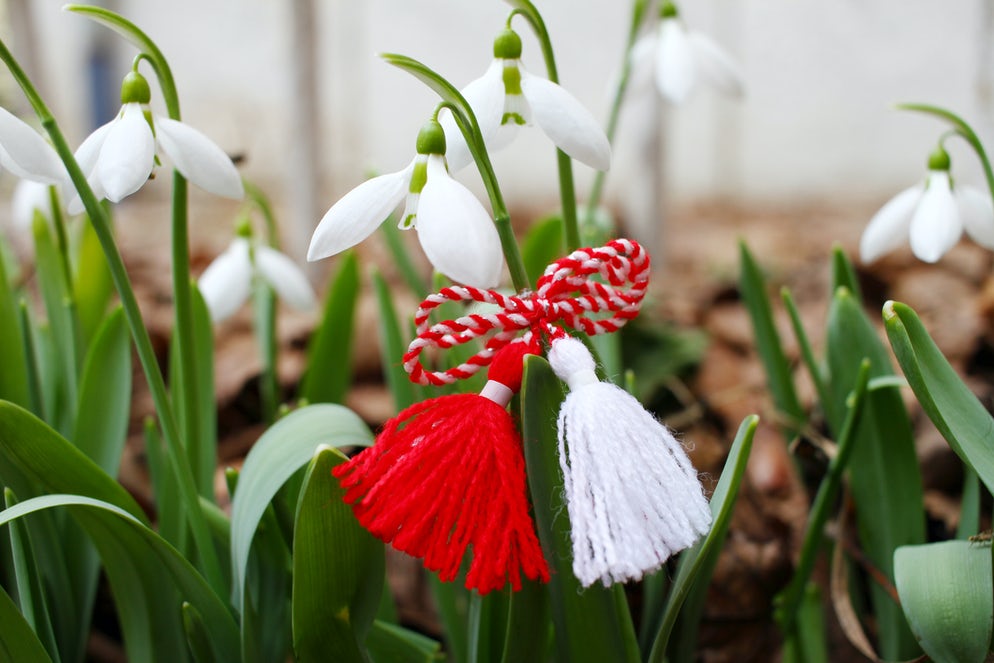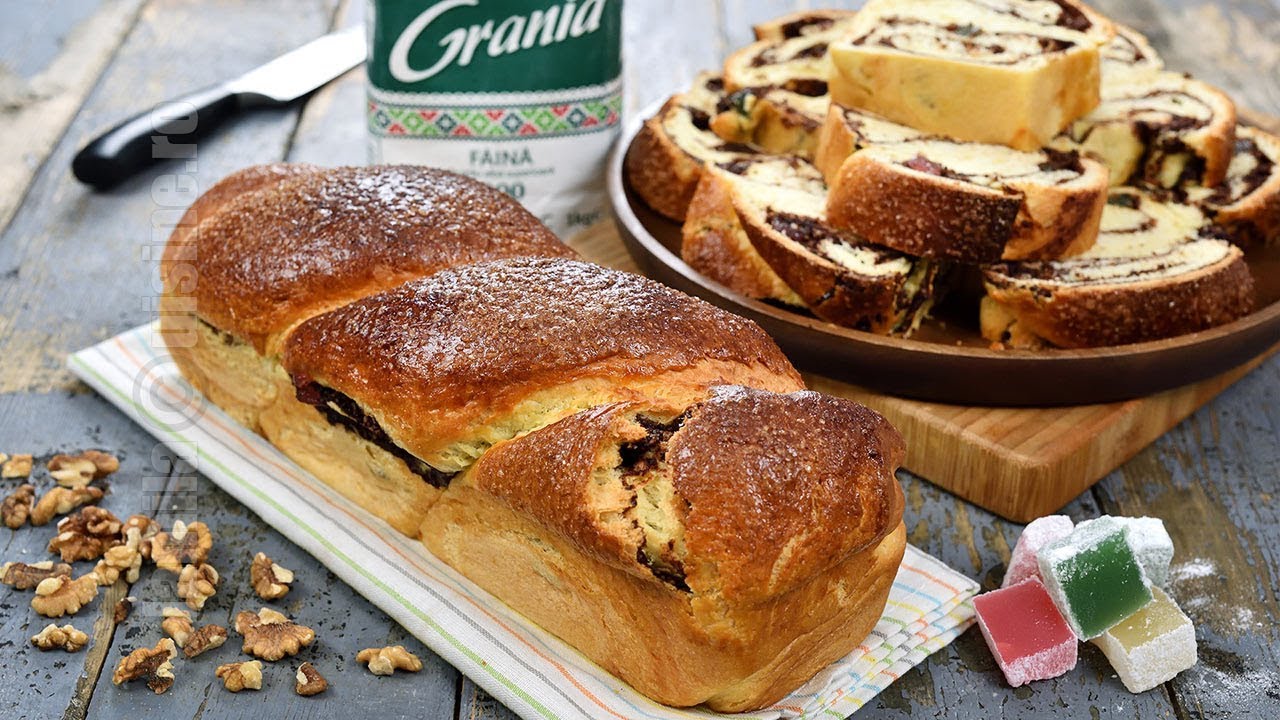Holidays & religion
Romania is a country where most of the population is following the orthodox-christian religion. The orthodox religion is derived from Christianity but is much stricter in some ways like fasting without any animal product (milk, eggs, butter), church service takes about 4 hours on a Sunday instead of the hour and a half like in the catholic church. Romania knows multiple holidays that are comparable with the western holidays and some that are just celebrated by Romanians.
New Years eve (Revelion)
New years eve or Revelion as it is known in Romania is a very important holiday and is the first holiday celebrated in Romania. The celebration of new years eve dates back to 2000 years before Christ. During the celebration the Romanian people give each other symbolic gifts, like sweets and honey as a sign of peace, money and gold as a sign of welfare or a lantern for a year full of light.
New Years day (Anul nou)
In the cities New Years day is being celebrated by having people over at home or go out to bars, pubs and continue the party that New Years Eve offered. However the date of New Years day corresponds with the celebration of saint Vasile the great (Sfantul Vasile). In the countryside this is being celebrated on the first day of the year. On this day children will go out caroling a carol called Socrova. With the carol they wish everyone a rich, fruitfull year.
Christmas (Craciun)
During Christmas the Romanians prepare the Christmas tree with beautiful ornaments, just like in most countries Christmas day is spent with family and friends. The celebration is in name of Jesus Christ who was born on Christmas. In addition to the usual tree ornamenting, gifting to others and gathering of friends and family the Romanians also go door to door and carol for sweets, fruit or money. This is mostly being done by children who have been practicing weeks beforehand to impress the people.
Martisor
In Romania on the first of march there is a celebration named Martisor (literally translated; small march). The men give woman a gift consisting of a red and white thread or a more expensive version is a piece of jewellery with the red and white thread involved in the appearance. After the woman received the gift from a man they will wear this accessory until the end of March. This tradition symbolizes the beginning of spring and it is believed to bring strength and health during the coming year. 
Easter (Pastele)
Easter is being celebrated on a different date than when the Christens and Catholics are celebrating the rise of Christ. Eastern is being celebrated after ‘the seven weeks of fasting’. During this time it is prohibited to eat any animal related food. This includes butter, milk, eggs and fish. During the last night of fasting everybody wakes up around midnight, washes themselves put on clean (usually new cloths) and heads towards the church. At the church there will be a ceremony where the priest will, with a cross and a lit candle in his hands, come out of the church followed by all the believers. The priest will then shout:
‘’Christos a inviat’’, meaning christ has risen, To which everybody will respond with: ‘’Adevarat a inviat’’, meaning he really has. The fire from the candle the priest brought out is being used to light everyones candles. After which everyone will return to there homes with the lit up candle by the church its flames. When arriving home instead of going to sleep, everybody sits down at the table and has the first meal in seven weeks that consists of animal products.
Bear parade
When winter is nearing its end there is another unique tradition exclusive to Romania known as the bear parade. During this period there will be a parade of dancing bears which stand for bringing luck . The participants dress themselves with real bear hides and go door-to-door while growling and accompanied by percussion and singing to wear off all the evil.
Romanian traditional foods
Cozonac
This type of cake has been made for years and is a very old tradition in Romania. It is being said that the Cozonac is originated from ancient Egypt and then taken over by the Greek. Eventually it found its way to Romania. It is being made for special occasions like Christmas or easter but its also being enjoyed on a wedding day. Its made by using flower, eggs, milk, butter, salt and sugar. Optional ingredients that are used quite often are: resins, orange or lemon zest, walnuts, vanilla or rum extract, cocoa powder and poppy seeds.

Mamaliga
Mamaliga is a often made supplementary dish by Romanians. The dish consists of a type of corn porridge that is eaten with some type of meat (usually pig) and cheese mixed with yoghurt. Mamaliga was is known to be a replacement for bread for people who could not afford bread. During the passing of time it changed to a nostalgic food for many Romanians and is being eaten on the regular by all Romanians.
Mici (Mititei)
Mici are meat rolls usually consisting of a mix from pig-, cow- and chicken meat. This is a tradition Romanian dish that is made on a barbeque and is mostly eaten with a piece of bead and some mustard.
Sarmale
Sarmale is arguably the most iconic Romanian dish. The dish can be described as cabbage rolls stuffed with different types of meat or rice. In addition to the meat or the rice there are herbs added, onions and in some cases traditional (smoked) bacon (usually with rice). The dish is often served with mamaliga (corn porridge) and yoghurt to bring down the intensity of the overpowering flavour given by the sarmale. The dish is being eaten on all the holidays and on wedding days. Sarmale is a delicious dish especially when it is home cooked with the right ingredients. Many Romanians prepare for the winter by pickling cabbages so it can be used during the winter to make Sarmale.











Sarmale sanderP contributed on 01-04-2021 13:49
That Sarmale sounds delicious. Do you have a recipe to create my own homecooked version?
What a lovely country. I Jordan contributed on 06-04-2021 16:02
What a lovely country. I would surely visit after reading about it's pleasantries.
Mititei Lucas H contributed on 06-04-2021 18:24
Always thinking for a trip to Romania. After reading this, I will definatly go to Romania for mititei after COVID
Add new contribution